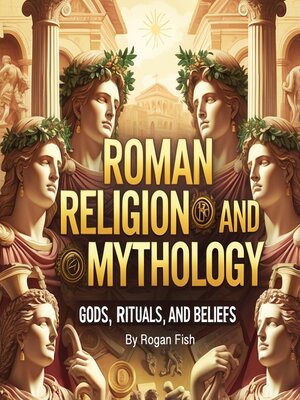
Sign up to save your library
With an OverDrive account, you can save your favorite libraries for at-a-glance information about availability. Find out more about OverDrive accounts.
Find this title in Libby, the library reading app by OverDrive.



Search for a digital library with this title
Title found at these libraries:
| Library Name | Distance |
|---|---|
| Loading... |
Roman religion was deeply intertwined with the culture, politics, and daily life of its people. Unlike many other ancient religions, it was not based on a single sacred text or central doctrine but was instead a complex system of beliefs, rituals, and traditions that evolved over time. The foundations of Roman religion can be traced back to early influences, the societal role of religious practices, and the establishment of a structured priesthood.
The origins of Roman religion were shaped by various influences, including the Etruscans and Greeks. The Etruscans, who inhabited central Italy before the rise of Rome, contributed many religious customs, such as the practice of interpreting omens and the organization of priestly colleges. Greek influence introduced a pantheon of gods with human-like qualities, which Romans later adopted and adapted to fit their own cultural identity. This blending of traditions resulted in a unique religious system that emphasized duty, order, and reciprocity between humans and the divine.
Religion played a crucial role in Roman society, guiding both private and public life. Every household maintained a sacred space for worshiping domestic deities, such as the Lares and Penates, who were believed to protect the home and family. On a larger scale, the state religion was intertwined with governance, and public rituals were performed to secure divine favor for Rome's prosperity. The performance of religious ceremonies was not merely a matter of personal faith but was considered essential for the stability of the state. Romans believed that their success as a civilization depended on maintaining good relations with the gods through proper observance of rituals and sacrifices.







